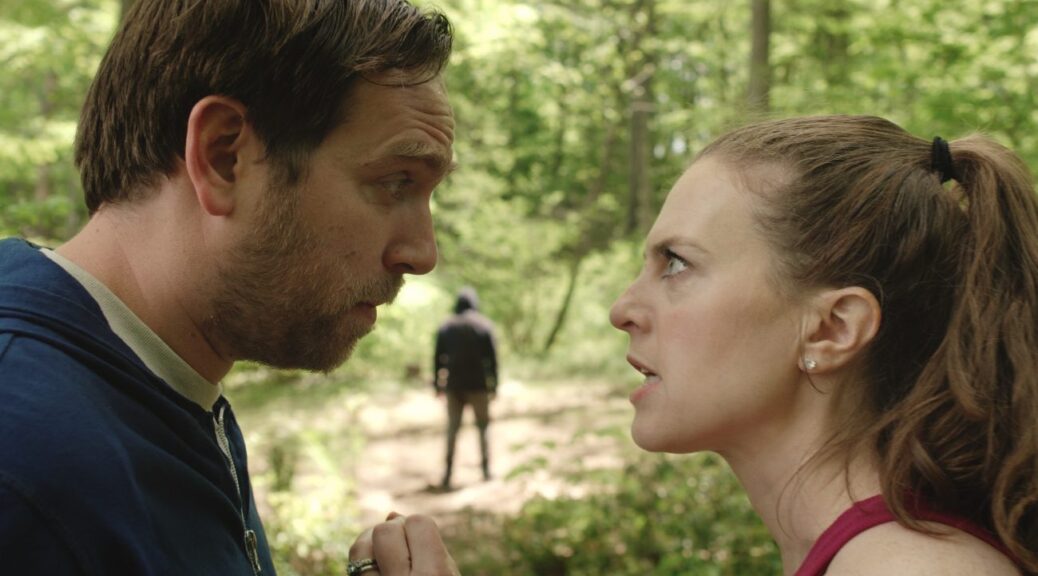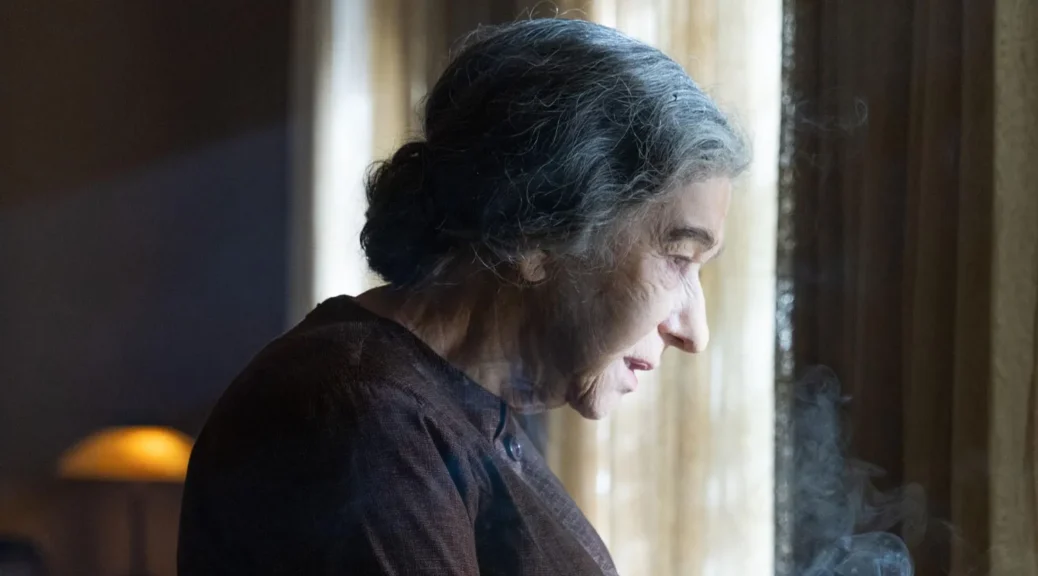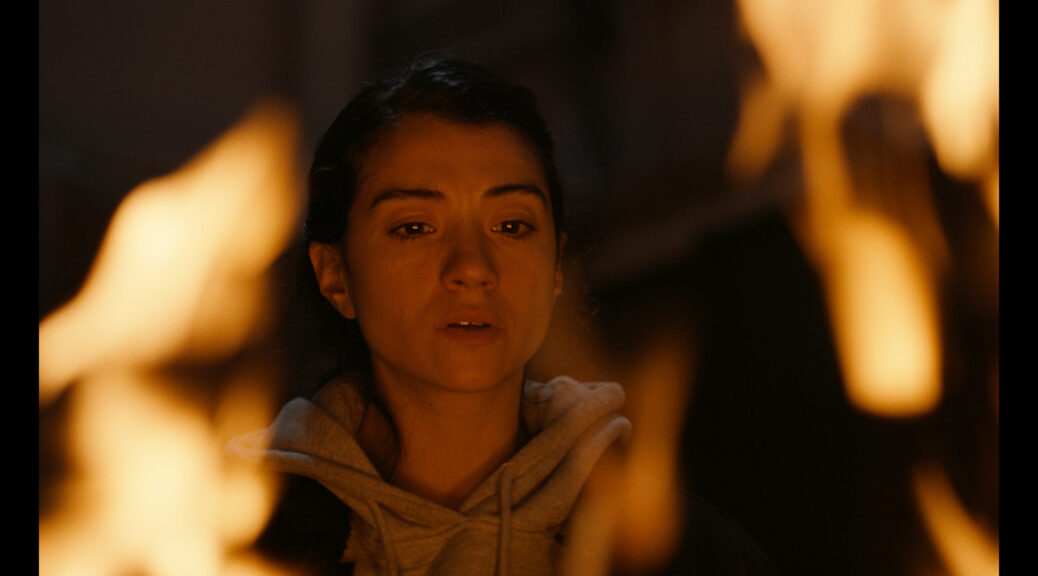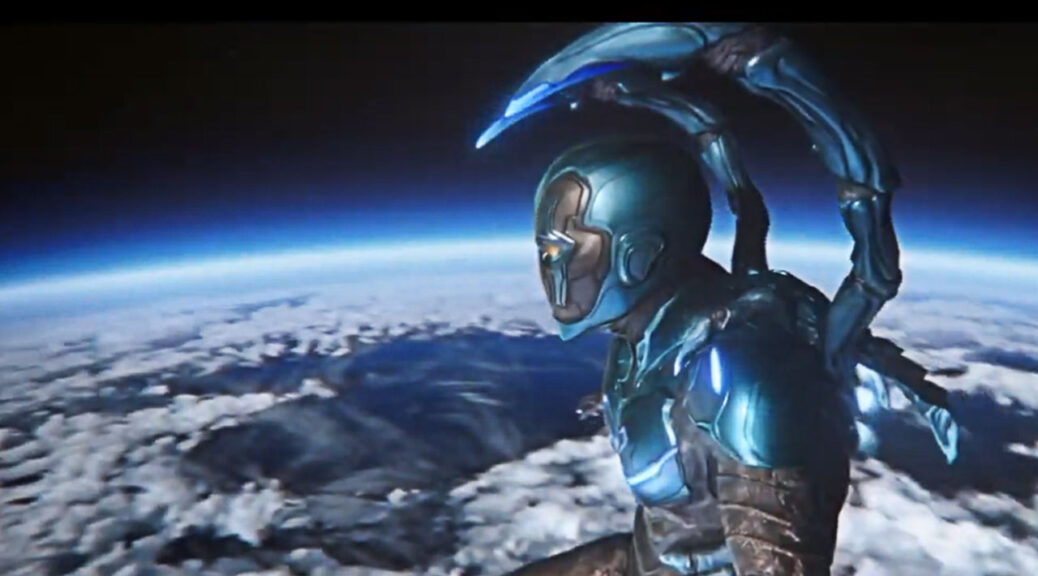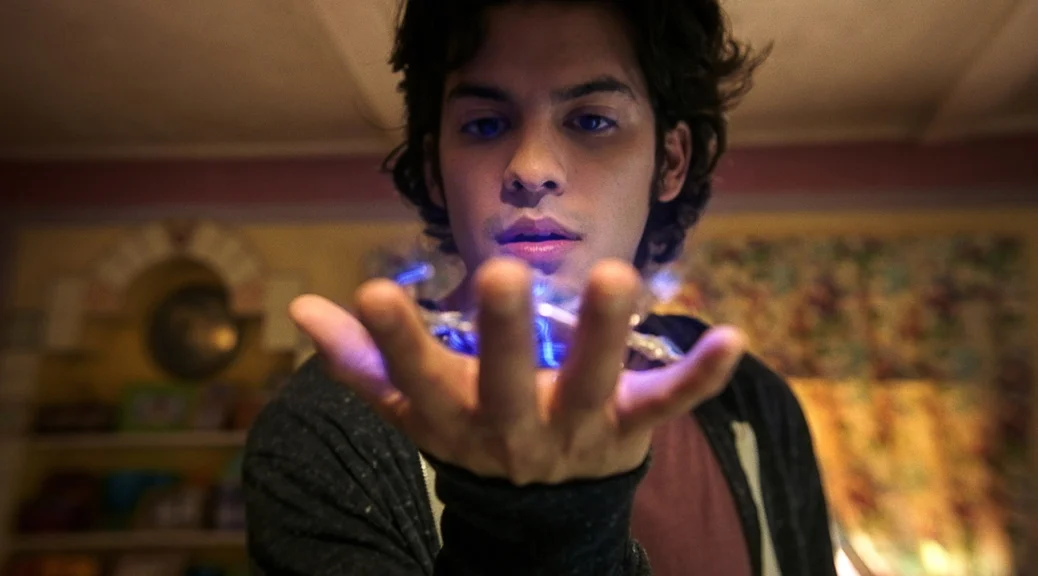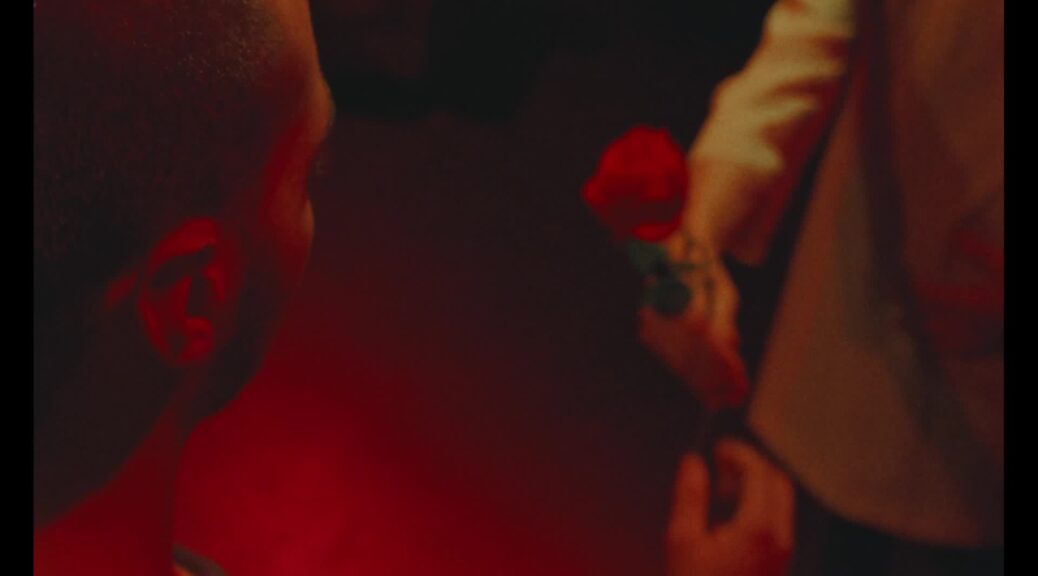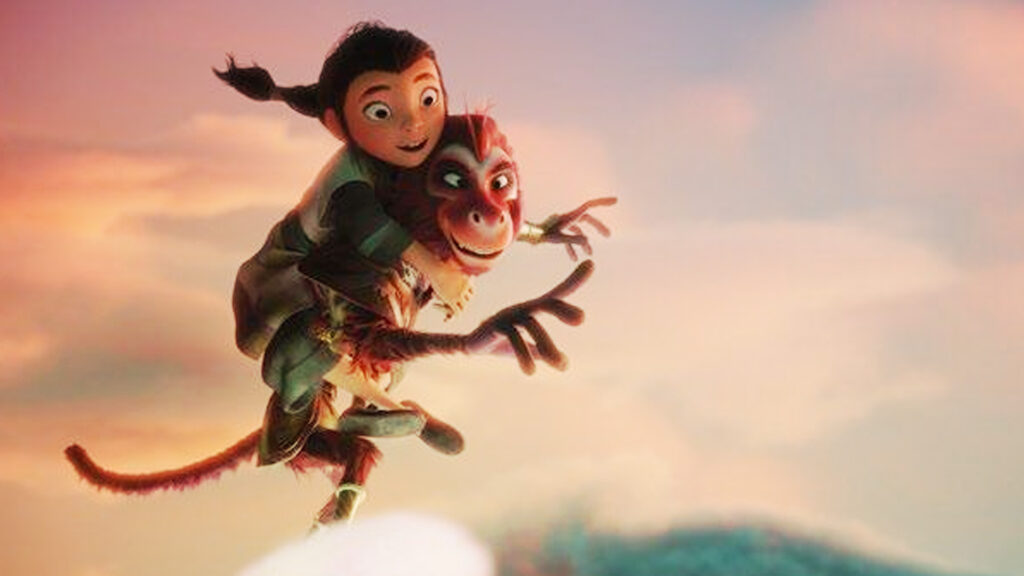Brightwood
by Brandon Thomas
We’ve all been stuck at a dinner or party with that one couple that seemingly hates one another. The snide remarks, uncomfortable body language, and icy stares create a tense environment that’s almost tangible. Now, imagine that this couple are the only two characters in a 90 minute horror movie. It would be easy to root for their eventual demise, but through clever plotting and character arcs, Brightwood manages to circumvent early assumptions.
Things are not going well for Jen (Dana Berger) and Dan (Max Woertendyke). Dan’s embarrassed himself – and mostly Jen – at a party the night before, and the hostility between the couple is at a fever pitch. That he’s tagged along on her morning run has only made Jen all the more angry. As Dan tries to match Jen’s pace – and beg for forgiveness along the way – the two slowly realize that their surroundings keep repeating and that odd-looking – but familiar – strangers are appearing to the both of them.
Writer/Director Dane Elcar takes his time getting to the genre trappings in Brightwood. The deteriorating relationship between Jen and Dan takes up the bulk of the film’s first act. It’s a portion that may test a lot of viewers as the rage and desperation radiating from the couple showcases two people at their lowest. That Berger and Woertendyke are so good at selling these heightened characters only makes the latter half of the film all the better.
Elcar keeps things character-centric even as the events around the couple get weirder. Brightwood isn’t a plot heavy film. The strange events happening to Jen and Dan are never explained. The fascinating part of the film is witnessing their arc not only in “real time”, but also through various versions of themselves that come and go.
Things get devilishly funny and violent as the film races (ahem) to its climax. What could’ve at first been a talky relationship drama ends in blood-soaked mayhem by the time the end credits begin the role. Dead Alive this movie ain’t, but Elcar doesn’t shy away from the carnage.
The tonal shifts never feel jarring or unnatural, which is a testament not only to Brightwood’s script but also the actors bringing it to life.
Brightwood is a clever addition to the time travel subgenre. Instead of getting lost in the mechanics of paradoxes and and alternate timelines, the film wisely keeps its eye on the two characters experiencing this horrifying event.
